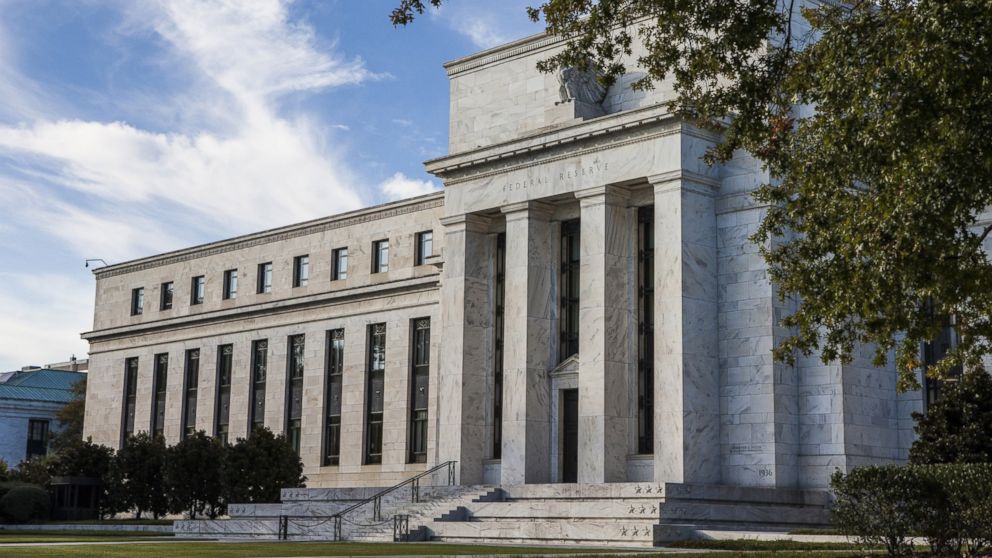Why the Fear of Fed Interest Rate Increases Makes Little Sense
The prospect of an increase is actually good news for the economy and investors.

— -- Based on what financial talking heads are saying, you’d think that rising interest rates would be something of an Armageddon for the stock market.
You can’t turn on the tube or open up a newspaper financial section without seeing a stream of speculation about when the Federal Reserve Board will raise the federal funds rate -– the rate the government charges banks for overnight loans, which ripples into higher rates for consumers.
Generally, the Fed raises this rate depending on economic conditions, which must be improving significantly, and whether inflation is rising. Lately, inflation has fallen to 0.2 percent at an annualized rate, the lowest since 2008, according to the Bureau of Labor Statistics. Economic conditions are stronger, with falling unemployment and reasonable though not spectacular growth in Gross Domestic Product.
As the September meeting of the Fed board approached, this rate-anoia intensified, only to subside a bit after the Fed decided not to raise rates. Doubtless, as the next meeting approaches at the end of October, the buzz will rise again.
The snippet of logic underlying these fears holds that higher rates will crimp consumer spending, impairing economic growth, and lowering earnings of corporations that would have to pay higher rates on their bonds. This, say the rate-baters, will most certainly depress the stock market.
The only problem with all this is that it has no basis in reality. Interest rate increases over the last 20 years have actually been good for the markets.
According to a Bloomberg analysis of stock market data going back to 1952, on average stocks have risen 4.2 percent in the first six months after a rate increase and 5.8 percent in the following six months. Not all sectors of the market have risen during these periods, but this has been the behavior of the overall stock market in the past 20 rate increases back to the Truman administration.
Not only do rate increases fail to live up to their fearsome reputation as damaging to the stock market, they can actually help some industries directly. Rising rates can be an immediate boon to banks, brokerages and insurance companies, primarily because this boosts margins for banks and brokers and rates the insurance companies receive on the large cash reserve they’re required to maintain to pay claims.
Quality stocks in these categories with strong fundamentals include: Synchrony Financial (SYF), JP Morgan Chase (JPM), TD Ameritrade (AMTD), Goldman Sachs (GS), Travelers (TRV) and UnitedHealth Group (UNH).
Further, economic conditions that prompt the Fed to raise the federal funds rate generally reflect increasing consumer confidence, and increased market confidence in companies that sell non-essential consumer products and services to the public – consumer discretionary stocks. Desirable stocks in this category include those of housing-related companies, such as Home Depot (HD), DR Horton (DHI), and Mohawk Industries (MHK). They also include travel- and entertainment related companies: Carnival Cruise (CCL) and Delta Airlines (DAL).
As rising rates are a harbinger of good things to come because they signify a growing economy, the overall market can get a boost. Sure, there’s some concern that consumers will pull back, but a quarter-point increase -– which is how successive rate hikes usually begin -– has little impact on car loans and, in the scope of things, only a small impact on mortgages. The monthly payment will be higher, but rates will still be historically quite low and for those who are able, buying a home won’t be onerously more expensive.
In fact, the prospect of a Fed rate increase often prompts leisurely buyers to be more decisive and move ahead, thus propelling the real estate market. That’s already happening in some locations.
So when you hear all the noise about the possibility of a Fed rate increase, relax and remember: When they were burning witches in Salem, Mass., there was a big industry built around that paranoia, too. But there were no witches.
Any opinions expressed in this column are solely those of the author. The inclusion of specific companies in this story is for informational purposes only and does not reflect a recommendation for purchase by the author.
Dave Sheaff Gilreath is a founding principal of Sheaff Brock Investment Advisors LLC. He has more than 30 years of experience in the financial services industry, beginning with Bache Halsey Stuart Shields and later Morgan Stanley Dean Witter. At Sheaff Brock, he shares responsibility for setting investment policy, asset allocation and security selection for the company's managed accounts. He also consults with the clients on portfolio construction. Gilreath received his Certified Financial Planner® (CFP) designation in 1984. He attended Miami University in Oxford, Ohio, where he earned a B.S. degree.




